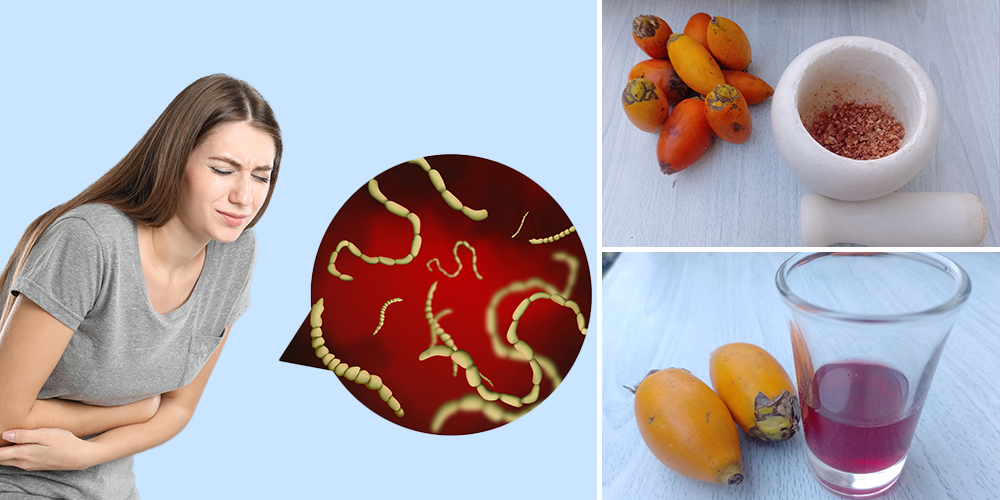
10 Signs You Have a Parasite Inside
Parasitologists call them the parasite unholy trinity: roundworm, hookworm, and whipworm. Affecting about half of the world’s population, these parasites are well-known infectious agents that can affect both humans and animals. But, these unholy trinity are just three of the hundreds of parasites known to affect humans.
You probably have tiny parasites inside just as you read this. But by the end of this article, I’ll show you how to fight them!
Causes of Parasite Infection
According to the clinical microbiology review History of Human Parasitology, there are about 300 species of helminth worms and 70 protozoa humans have acquired over the years. Some of them are rare, but some 90 species are still causing a multitude of diseases, mostly prevalent in the tropics.
You can get parasitic worms from eating raw foods, drinking contaminated water, or walking barefoot where these worm eggs may be dwelling. Some infections do not pose any symptoms so you will never know you have parasites. And, many of these will disappear on their own through a healthy diet and lifestyle.
The parasite enters your body through food and unhygienic practices. Touching your fingers that had come in contact with their eggs is enough for them to make you the next host.
Certain situations also increase the risk of parasitic infection such as:
- Living or visiting places that are known to have cases of the infection

- Living on a farm
- Living with a pet
- Poor sanitation
- Poor hygiene
- Exposure to healthcare centers
- Weak immune system
- HIV AIDS
- Handling soil and wastes
A fecal test, blood test, or “scotch tape” test may be used to determine the presence of parasites. With the scotch tape test, a tape will be touched to the anus and examined under a microscope to find the presence of eggs.
Imaging with barium and CT scans may also be requested to identify the presence of adult worms.
10 Signs of Parasite Infection
Parasites can dwell in the intestine for many years but many cases rarely show symptoms. When they do, gastrointestinal symptoms are likely to occur.
The guide that helped me become a professional herbalist provided valuable info on recognizing and alleviating symptoms below. When I experienced them, my doctor initially prescribed aggressive antibiotics for a disease he just suspected I had. Thank God the guidance in this book led me to the real root cause – parasites.
Once I got rid of the worms lurking in my bowels naturally, I resolved the issue without needing the pills for a misdiagnosed disease.
The common signs of parasitic infection include:
1. Abdominal Pain
Parasitic infection can cause acute abdominal pain. Since the symptom is similar to other abdominal problems, its diagnosis can be delayed. Parasitic infection can irritate and inflame the digestive tract which can lead to gastroenteritis.
2. Nausea and Vomiting
The changes in the gut microbiome due to the presence of parasites can cause nausea and vomiting. Anorexia is also common in people with parasitic infections. It will also leave one with a lack of satisfaction after meals.
3. Itching
Pinworm infection can cause rash and itching around the anus. That is due to the female pinworms moving to the anal area to lay their eggs. Scratching the area can transfer these eggs on the fingernails and into other surfaces which can spread the infection to other hosts.
4. Diarrhea
Cryptosporidiosis, or Crypto, is a parasitic infection that manifests symptoms like diarrhea. It is usually acquired from food and swallowing contaminated swimming pool water. The parasite passes through the digestive tract and infects the intestine, causing watery stool.
5. Gas and Bloating
Intestinal tract infection, particularly in giardiasis, can cause a bloating sensation. Excessive gas may also cause a distended abdomen and increase the waist size. Distention is one of the first obvious symptoms to spot in an infected person.
6. Changes in Weight
Excessive weight loss can happen, especially with tapeworm infection. These segmented worms can live and feast on the food and nutrients of their host. It consumes the nutrients before the body can, resulting in loss of appetite and malnutrition.
However, there are cases when the opposite happens and infected humans gain weight instead. Parasites can influence food cravings due to nutritional deficiencies where the body craves sugar and carbohydrates causing weight gain.
7. Chronic Fatigue
The malabsorption of nutrients can trigger other non-gastrointestinal symptoms like excessive feeling of tiredness. It is due to nutritional deficiency that leads to the disruption of the gut microbiome.
8. Anemia
Iron deficiency anemia is also a telltale sign of parasite infection. As these microorganisms feed on the blood and tissue of their host to survive, the body will lose iron and protein. It results in a deficiency in red blood cells and is evidenced by pale pallor.
9. Passing Worms in Stool
Depending on the type of worm, infected individuals may pass worms on poop without them noticing. They can be just specks while some are more visible than others. More often, it is just the eggs appearing that can only be seen under a microscope.
10. Grinding of Teeth
Grinding of teeth as a sign of parasite infection was dismissed to be a myth. But bruxism or grinding of teeth, especially at night, may indeed be indicative of the presence of a parasite. Parasites release toxins that interact with neurotransmitters leading to anxiety, nervousness, and grinding of teeth at night.
Herbal Treatment for Parasites
Some herbs contain antiparasitic properties that are useful in expelling a parasitic infection. These are also useful in toning the immune system so that the body can naturally cure itself.
Herbs affect the body differently so talk to your doctor before taking them. Avoid taking herbal remedies against parasites if you are currently taking medications. Usually, for parasite cleanses you should take them as directed for no more than two weeks, and then stop for a while.
A few of these herbs include:
Garlic
Garlic (Allium sativum) is an effective and natural parasiticide that can be used for internal and external infection. A clinical study suggests the promising potential of garlic against Cryptosporidium.
⇒ This Is Why You Should Put Garlic in Honey (Video)
Wormwood
Wormwood (Artemisia absinthium) is a traditional anthelmintic that was used for expelling Ascaris and tapeworm. A very potent herb by itself, wormwood is toxic in large amounts and is often used in combination with other herbs like black walnut. This can be substituted with its mild version, the sweet wormwood.
Black Walnut
The husk of black walnut (Juglans nigra) is one of the best herbal treatments for all types of worm infections. Taking about 5 ml of black walnut decoction can expel worms and relieve their digestive symptoms.
Areca Nut
A valuable remedy against parasitic infection, areca nut is widely used in many regions in the tropics as a purgative. Areca (Areca catechu), also known as betel nut, can be chewed or taken as a decoction to treat parasites even in children.
Papaya Seeds
Papaya seeds (Carica papaya) contain papain, which is an effective anthelmintic. Eating ripe papaya seeds with honey 30 minutes before or after a meal can destroy and flush out intestinal worms.
Thyme
Thyme (Thymus vulgaris) is one of the plants that stand out in a study conducted on the antiparasitic activity of herbs and spices. Its extracts exhibited antiprotozoal activity against giardia and other parasites.
Oregano
Oregano (Origanum vulgare) also displayed antiparasitic activity against endoparasites. Adding 3 drops of oregano oil to a glass of water and the juice of one lemon may help with entamoeba.
Areca Nut for Parasite Infection
Areca (betel nuts) are the nuts from the areca palm tree. It is a popular vermifuge in regions where parasite infection is most prevalent. Areca nuts can be consumed raw, roasted, or prepared as a decoction.
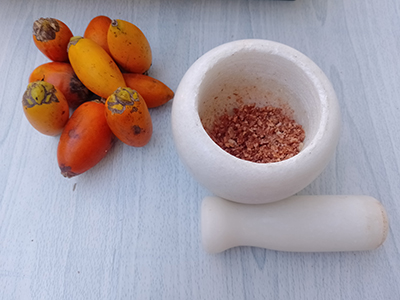
For this recipe I chose the Areca Nut since I also like the taste of it. You may use other natural remedies or herbs mentioned above that you may have in your house already.
Ingredients
- 1 areca nut
- 1 cup water
Steps
- Remove the husk and ground the areca nut kernel.
- Take 2 pinches and add it to a cup of water.

- Bring to a boil and simmer for 20 minutes.

- Let cool before drinking.

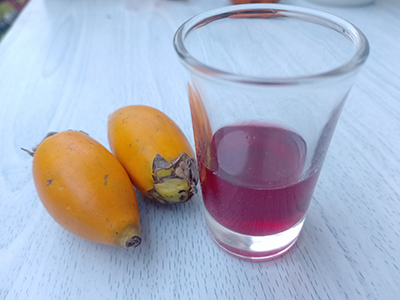
To use: Drink 10 to 15 ml of the decoction once a day, preferably on an empty stomach. Areca nut in its pure form is not dangerous as long as it is taken in moderation.
Consuming areca may cause euphoria when taken unreasonably. Chewing areca is also habit-forming and can lead to addiction.






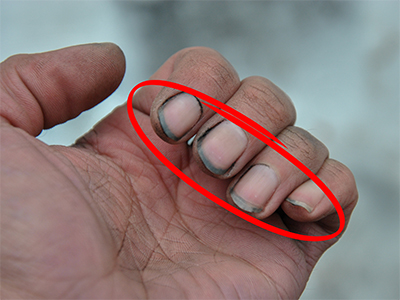
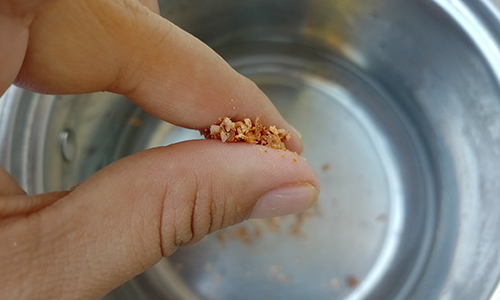
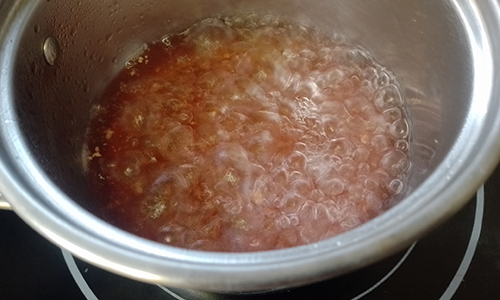
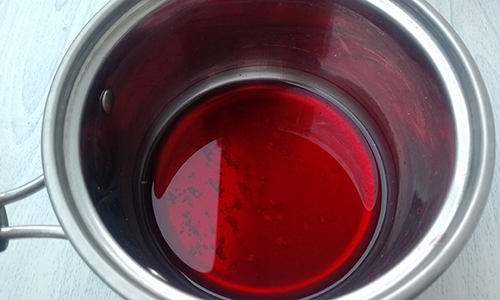
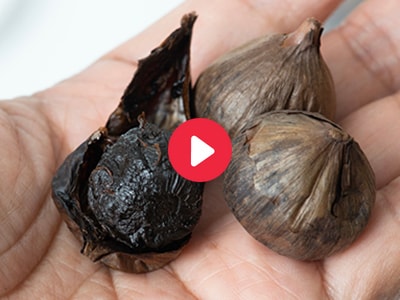

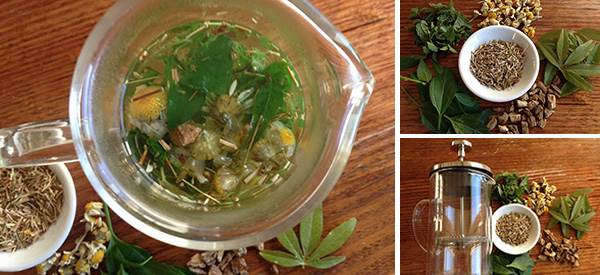

Thank you
Very informative. I will use you information to share with others. Thank you for sharing with us.
Yuck! I am so glad that I eat healthy foods!
But you can get them from working in your garden of “healthy” foods. You can get them from your kids who got them from other kids, you can get them from your dog or cat!!! 85-90% of world population has parasites, honey!!!!
My husband was in Vietnam for 2 tours and he talked about the locals eating betel nut all the time which turned their teeth black.
Great information. I grow fresh thyme and oregano and see how it would be a great idea to make the oils.
Am i to late to buy this book ?